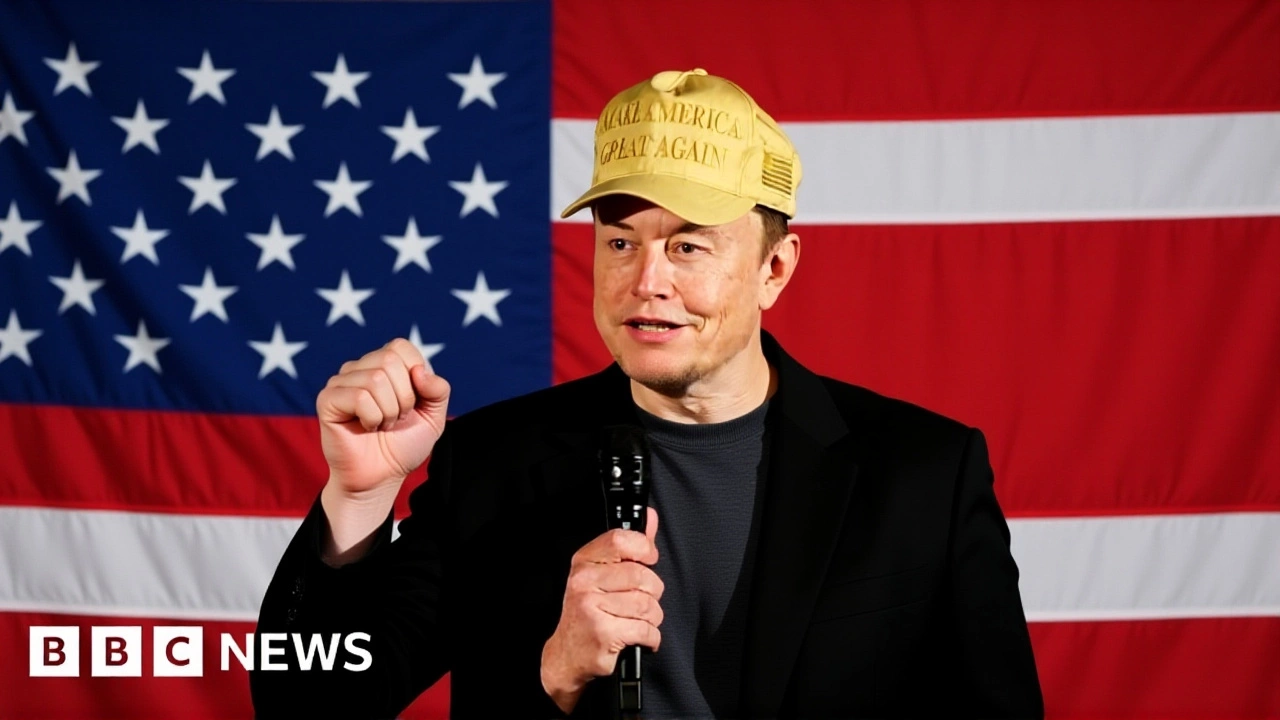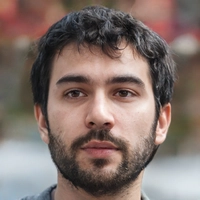Every day since October 20, 2024, a random registered voter in one of seven battleground states has walked away with $1 million — not because they voted, but because they signed a petition. The man behind it? Elon Musk, the 53-year-old CEO of Tesla Inc., whose political arm, America PAC, is running the unprecedented cash giveaway through Election Day on November 5, 2024. The twist? No one is being paid to cast a ballot. They’re being paid to sign a document supporting the First and Second Amendments. And that distinction, legal experts say, might be the only thing keeping it from being outright illegal.
The Mechanics of a Million-Dollar Petition
The program targets registered voters in Pennsylvania, Georgia, Nevada, Arizona, Michigan, North Carolina, and Wisconsin — the exact states that will decide the 2024 presidential race. Winners are chosen daily via random draw, with two recipients already announced by October 21. The first, a Green Bay, Wisconsin man who had previously donated to the Republican Party of Wisconsin and publicly backed Trump, received $1 million on October 22. The second, a retired teacher from Arizona who posted pro-Trump memes for years, got hers on October 23.
Musk’s stated goal, posted on his social media platform X (formerly Twitter), is to "get 1 million registered voters in swing states to sign in support of the Constitution, especially freedom of speech and the right to bear arms." But critics argue the petition is a smokescreen. Why else pick only swing states? Why offer a million dollars — more than most Americans earn in a lifetime — for a signature?
Legal Battles Erupt Across the Nation
The scheme didn’t go unnoticed. On October 27, 2024, the Wisconsin Supreme Court unanimously rejected a last-minute lawsuit from the state’s Democratic Attorney General seeking to shut it down. The court’s terse order cited "lack of standing," but didn’t rule on the legality of the giveaway itself. A day later, in Philadelphia, Larry Krasner, the city’s Democratic District Attorney, filed a formal lawsuit accusing Musk and America PAC of running an illegal lottery under Pennsylvania law.
Under Pennsylvania statute, lotteries must be state-run and benefit residents over 65. Krasner argued that paying people to sign a petition — with no other obligation — is functionally a lottery: pay to enter (sign), random selection, cash prize. But on October 28, Common Pleas Court Judge Angelo Foglietta denied Krasner’s request for a preliminary injunction. "The petition is not a game of chance," he wrote in a preliminary order, "it’s an expression of political opinion." A full opinion is expected after Election Day.
Meanwhile, the U.S. Department of Justice’s Criminal Division sent Musk a formal letter warning that the giveaway "may violate federal law," specifically citing 18 U.S.C. § 597, which prohibits paying people to register to vote. While Musk’s team insists no one is being paid to register — only to sign a petition — federal prosecutors are scrutinizing whether the petition serves as a de facto voter mobilization tool. The line, they argue, is dangerously thin.
Expert Analysis: Testing the System, Not Breaking It
"What Musk is doing is he’s trying to take the system as it is and manipulate it," said Jeremy Paul, a full professor at Northeastern University School of Law in Boston. "He’s not paying for votes. He’s paying for speech. But in practice, it’s voter acquisition disguised as constitutional advocacy. The courts are being forced to decide: Is this political speech, or is it bribery with a First Amendment label?"
Paul pointed to the 2020 Georgia runoff elections, where outside groups spent $100 million on get-out-the-vote efforts — all legal because they didn’t tie money directly to voting. Musk’s giveaway, Paul added, is different because it’s not just funding advocacy. It’s a direct, high-stakes incentive tied to a specific political outcome.
"This isn’t about the Constitution," Paul said. "It’s about who gets to decide what counts as political participation. And right now, the richest man in the world is rewriting the rules by himself."
The Bigger Picture: Campaign Finance in the Age of Billionaires
Musk’s America PAC has already contributed $75 million to former President Donald Trump’s 2024 campaign. The giveaway isn’t just a PR stunt — it’s an extension of that financial muscle. Unlike traditional PACs, which must disclose donors and spending limits, America PAC operates as a dark money group, meaning its funding sources remain hidden. The giveaway, then, becomes a stealthy way to funnel influence without triggering campaign finance disclosures.
And it’s working. According to internal data from America PAC, over 850,000 signatures had been collected by October 30 — nearly 15% of the total registered voters in the seven target states. The petition’s language is broad, but its intent is unmistakable: rally conservative voters, energize the base, and create a digital paper trail of "constitutional supporters" to be used in future litigation or voter suppression lawsuits.

What Comes Next?
Even if the giveaway survives Election Day, the legal reckoning is just beginning. Courts in Pennsylvania and possibly federal courts will issue rulings in the weeks after November 5. Meanwhile, California lawmakers have already drafted a bill to ban lottery-style voter incentives in future elections — a direct response to Musk’s experiment.
"This isn’t about Elon Musk," said former FEC commissioner Ann Ravel. "It’s about whether we still believe in a level playing field. If billionaires can buy influence with million-dollar prizes, then democracy becomes a bidding war."
Background: The Wisconsin Supreme Court’s Role
The giveaway’s timing isn’t accidental. In April 2024, Wisconsin voters elected a liberal candidate to the state Supreme Court — a race that could decide abortion rights, redistricting, and voting access for the next decade. Musk’s first winner was a known supporter of the conservative candidate in that race. The giveaway, then, may be less about the 2024 presidential election and more about influencing the judicial battlegrounds that will shape elections for years to come.
Even more telling: special congressional elections in Florida’s 6th and 1st Districts in April 2025 — both deep-red districts vacated by Trump appointees — saw record Democratic fundraising. That suggests the political landscape is shifting, and Musk’s giveaway may be an attempt to counteract that momentum.
Frequently Asked Questions
Is it legal to pay people to sign a political petition?
There’s no federal law explicitly banning payment for petition signatures, but state laws vary. Pennsylvania considers it a lottery if money is involved without a state-run structure. Courts are now deciding whether signing a petition constitutes "consideration" under lottery statutes — a legal gray area with major implications for future political activism.
Why only swing states?
The seven states targeted — Pennsylvania, Georgia, Nevada, Arizona, Michigan, North Carolina, and Wisconsin — are the exact battlegrounds that decided the 2020 election and will likely decide 2024. Targeting them isn’t coincidental; it’s strategic. Paying voters elsewhere wouldn’t move the needle. This is about influence, not inclusion.
Has anything like this happened before?
Not on this scale. In 2018, a Texas businessman offered $100 gift cards to voters who showed proof of voting — and was quickly sued. Musk’s giveaway is different: no proof of voting required, just a petition. That technicality is why it’s survived so far — but also why it’s so dangerous. It exploits a loophole in campaign finance law that may not survive judicial scrutiny.
What’s the Justice Department’s stance?
The DOJ’s Criminal Division warned Musk that the giveaway may violate 18 U.S.C. § 597, which bans paying people to register to vote. While the petition isn’t registration, prosecutors argue the petition serves as a proxy for voter mobilization — especially since winners are drawn from states with tight races. A federal indictment remains possible after Election Day.
Could this change how elections are run in the future?
Absolutely. If courts allow this, billionaires could launch daily cash giveaways in future elections — targeting specific demographics, states, or issues. It turns democracy into a contest of wealth, not ideas. California’s proposed ban is just the beginning. Expect similar legislation in New York, Illinois, and Colorado if this stands.
Who benefits most from this giveaway?
The America PAC and its political allies. By creating a database of 1 million petition signers — many of whom are already conservative activists — Musk is building a permanent voter file for future campaigns. It’s not just about November 5. It’s about 2026, 2028, and beyond. The money? Just the bait.

